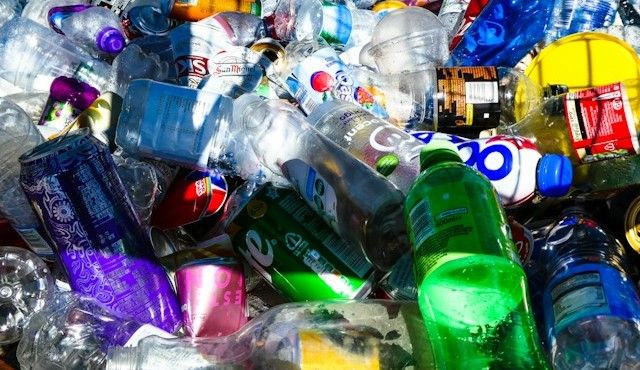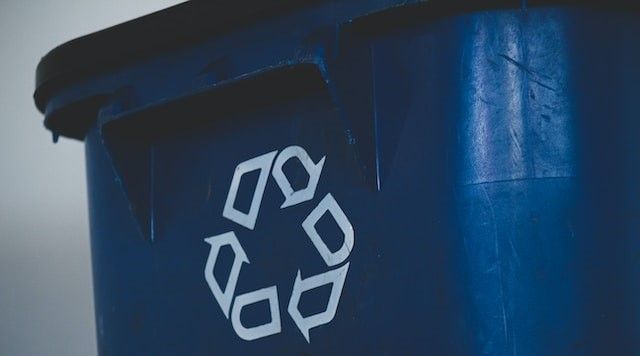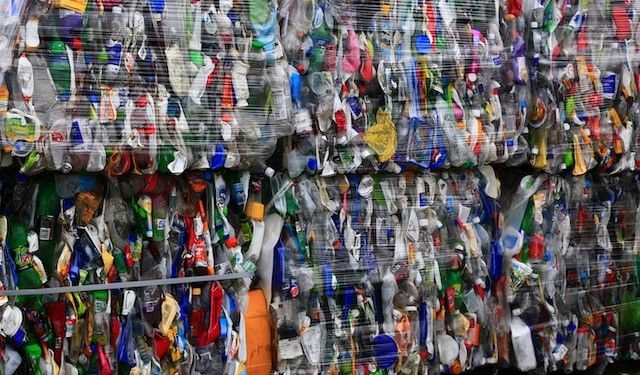Polymer scientists have already created bio-based plastics, such as polylactic acid (PLA), to help lower carbon emissions and avoid the issue of plastic waste.
However, in a world where fossil fuel-based plastics are the norm, biopolymers commonly enter recycling waste streams, as consumers are unable to distinguish them from their conventional counterparts. While bio-based plastics are recyclable, they are meant to be composted. This is because when they are inadvertently added to the petroleum-based recycling stream they lower the quality of the resulting recycled plastic resin.

At present, the only solution available is separation. But as the bioplastics look and feel so similar to their fossil-fuel equivalents, this is extremely difficult for expert eyes or even high-end, automated sorting machines. This results in recycling feedstock being made from an assortment of different plastics – both fossil-fuel and bio-sourced.
To avoid sorting, a process is needed that can efficiently recycle mixed plastics by breaking down the polymers into their simplest form.
With this goal in mind, scientists from Lawrence Berkeley National Laboratory (Berkeley Lab) have collaborated with the Joint BioEnergy Institute (JBEI) with funding from the moonshot X program founded by Alphabet, Google’s parent company – to create a ‘one-pot’ process for polymer recycling.

“It’s sort of ironic because the purpose of using bio-based plastics is to be more sustainable, but it’s causing problems,” observes Chang Dou, the study’s first author, a senior scientific engineering associate at Berkeley Lab. “Our project is trying to get around the separation issue and make it so you don’t have to worry about whether you mix your recycling bin. You can put all the plastic in one bucket.”
The resulting research has created a process which combines the power of naturally derived salt solutions and specialized microbes.
As the Berkley press release explains, “In a single vat, the salts act as a catalyst to break the materials down from polymers, large structures of repeating molecules bonded together, into the individual molecules called monomers, which the microbes then ferment into a new type of biodegradable polymer that can be made into fresh commodity products.”
“There is an open discussion on whether we can use waste plastics as a carbon source for biomanufacturing,” explains Zilong Wang, a UC Berkeley postdoctoral researcher. “It is a very advanced idea. But we proved that using waste plastics, we can feed microbes.”
Wang believes that if the researchers had more advanced genetic engineering tools, then they might be able to get microbes to grow on multiple types of plastics at the same time.
“We foresee the potential to continue this study where we can replace the sugars, traditional carbon sources for microbes, with the processed hard-to-recycle mixed plastics that can be converted to valuable products through fermentation,” he adds.
The work has now been published in the journal One Earth.

The next stage for the polymer researchers is to experiment with different organic salt catalysts to identify one that can break down polymers efficiently as well as be reused in repeat batches – to reduce costs. Additionally, they are simulating how the process might function in actual recycling facilities.
“Chemical recycling has been a hot topic, but it’s difficult to make it happen at the commercial scale because all the separation steps are so expensive,” concludes Ning Sun, the project’s principal investigator. “But by using a biocompatible catalyst in water, the microbes can directly convert the depolymerized plastics without extra separation steps.”
The ultimate goal for the polymer researchers is to create a world where plastic waste has value as a feedstock. This would stop it adding to the 8.3 billion tonnes of plastic that is already in landfills, and instead allow it to re-enter the supply chain to be used for manufacturing chemical products, pharmaceuticals, or biofuels. A future without plastic waste.
Photo credit: Pawel Czerwinski on Unsplash, Nick Fewings, Sigmund, & Nareeta Martin